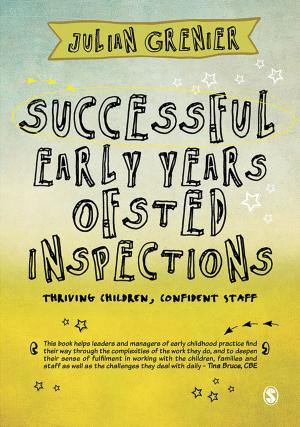The Library Assistant's Manual
(Provisional Edition)
Biography & Memoir, Reference, Nonfiction, Reference & Language, Guides & Handbooks, Education & Teaching| Author: | Theodore W. Koch | ISBN: | 1230000262349 |
| Publisher: | LANSING, MICHIGAN STATE BOARD OF LIBRARY COMMISSIONERS | Publication: | August 22, 2014 |
| Imprint: | Language: | English |
| Author: | Theodore W. Koch |
| ISBN: | 1230000262349 |
| Publisher: | LANSING, MICHIGAN STATE BOARD OF LIBRARY COMMISSIONERS |
| Publication: | August 22, 2014 |
| Imprint: | |
| Language: | English |
Example in this ebook
CHAPTER I.
THE LIBRARY MOVEMENT IN THE UNITED STATES.
The forerunner of the American public library of today is found in the subscription or stock company libraries of Philadelphia, Boston and other cities. The oldest of these is the Philadelphia Library Company, founded in 1731 by Benjamin Franklin who later referred to it as “the mother of all subscription libraries in America.” The Rev. Jacob Duché, a director of the Library Company, wrote in 1774: “Literary accomplishments here meet with deserved applause. But such is the taste for books that almost every man is a reader.” The Library Company’s authority on book selection was James Logan (the friend of William Penn) who was esteemed “to be a gentleman of universal learning and the best judge of books in these parts.” In 1783 the Library Committee instructed its London agent that “though not averse to mingling the dulce with the utile, they did not care to have him buy any more novels.”
In 1869 the Library Company was made the beneficiary under the will of Dr. James Rush, who left $1,500,000 to establish the Ridgeway Branch. On account of the conditions attached to the bequest, the gift was accepted by a bare majority of the stockholders. Among other restrictions, the will contained the following clause: “Let the library not keep cushioned seats for time-wasting and lounging readers, nor places for every-day novels, mind-tainting reviews, controversial politics, scribblings of poetry and prose, biographies of unknown names, nor for those teachers of disjointed thinking, the daily newspapers.” The provisions of the will were strictly carried out and today the Ridgeway Library stands as a storehouse of the literature of the past, a monument to the donor and an evidence of the change that has come over the world in its conception of the function of the library.
Boston Athenæum.—Like the Philadelphia Library Company, the Boston Athenæum was the outgrowth of a group of men who had in common an interest in books. In May 1806, the Anthology Society, which had been editing the “Monthly Anthology and Boston review,” established a reading room, the object of which was to afford subscribers a meeting place furnished with the principal American and European periodicals. The annual subscription was placed at ten dollars, which was not more than the cost of a single daily paper. The organization prospered and by 1827 the treasurer’s books showed property valued at more than $100,000. Two years later the library administration faced a new problem: a woman applied for admission to the library. Having no precedent to guide him, the librarian allowed the applicant free access to the shelves. She was Hannah Adams, who wrote “A view of religious opinions,” a “History of New England,” and “The history of the Jews.” The next woman to ask for admission to the treasures of the Athenæum was Mrs. Lydia Maria Child, (1802-1880), author of “The rebels,” “The freedman’s books,” “Hobomok,” etc., but her ticket of admission was shortly revoked “lest the privilege cause future embarrassment.” As late as 1855 Charles Folsom entered a protest against women having access to “the corrupter portions of polite literature.”
Boston Public Library.—In 1825 a plan was proposed whereby all the libraries in Boston should be united under one roof. Later, a Frenchman by name of Vattemare, caused to be introduced into Congress a measure which was to build up great libraries through international exchanges. A public meeting was held in Boston but a committee of the Boston Athenæum opposed the scheme and it was dropped. However, in return for some books forwarded through Vattemare to the Municipal Council of Paris, the Mayor of Boston received in 1843 about fifty volumes, which in reality formed the nucleus of the Boston Public Library.
To be continue in this ebook................................................................................................................
Example in this ebook
CHAPTER I.
THE LIBRARY MOVEMENT IN THE UNITED STATES.
The forerunner of the American public library of today is found in the subscription or stock company libraries of Philadelphia, Boston and other cities. The oldest of these is the Philadelphia Library Company, founded in 1731 by Benjamin Franklin who later referred to it as “the mother of all subscription libraries in America.” The Rev. Jacob Duché, a director of the Library Company, wrote in 1774: “Literary accomplishments here meet with deserved applause. But such is the taste for books that almost every man is a reader.” The Library Company’s authority on book selection was James Logan (the friend of William Penn) who was esteemed “to be a gentleman of universal learning and the best judge of books in these parts.” In 1783 the Library Committee instructed its London agent that “though not averse to mingling the dulce with the utile, they did not care to have him buy any more novels.”
In 1869 the Library Company was made the beneficiary under the will of Dr. James Rush, who left $1,500,000 to establish the Ridgeway Branch. On account of the conditions attached to the bequest, the gift was accepted by a bare majority of the stockholders. Among other restrictions, the will contained the following clause: “Let the library not keep cushioned seats for time-wasting and lounging readers, nor places for every-day novels, mind-tainting reviews, controversial politics, scribblings of poetry and prose, biographies of unknown names, nor for those teachers of disjointed thinking, the daily newspapers.” The provisions of the will were strictly carried out and today the Ridgeway Library stands as a storehouse of the literature of the past, a monument to the donor and an evidence of the change that has come over the world in its conception of the function of the library.
Boston Athenæum.—Like the Philadelphia Library Company, the Boston Athenæum was the outgrowth of a group of men who had in common an interest in books. In May 1806, the Anthology Society, which had been editing the “Monthly Anthology and Boston review,” established a reading room, the object of which was to afford subscribers a meeting place furnished with the principal American and European periodicals. The annual subscription was placed at ten dollars, which was not more than the cost of a single daily paper. The organization prospered and by 1827 the treasurer’s books showed property valued at more than $100,000. Two years later the library administration faced a new problem: a woman applied for admission to the library. Having no precedent to guide him, the librarian allowed the applicant free access to the shelves. She was Hannah Adams, who wrote “A view of religious opinions,” a “History of New England,” and “The history of the Jews.” The next woman to ask for admission to the treasures of the Athenæum was Mrs. Lydia Maria Child, (1802-1880), author of “The rebels,” “The freedman’s books,” “Hobomok,” etc., but her ticket of admission was shortly revoked “lest the privilege cause future embarrassment.” As late as 1855 Charles Folsom entered a protest against women having access to “the corrupter portions of polite literature.”
Boston Public Library.—In 1825 a plan was proposed whereby all the libraries in Boston should be united under one roof. Later, a Frenchman by name of Vattemare, caused to be introduced into Congress a measure which was to build up great libraries through international exchanges. A public meeting was held in Boston but a committee of the Boston Athenæum opposed the scheme and it was dropped. However, in return for some books forwarded through Vattemare to the Municipal Council of Paris, the Mayor of Boston received in 1843 about fifty volumes, which in reality formed the nucleus of the Boston Public Library.
To be continue in this ebook................................................................................................................















